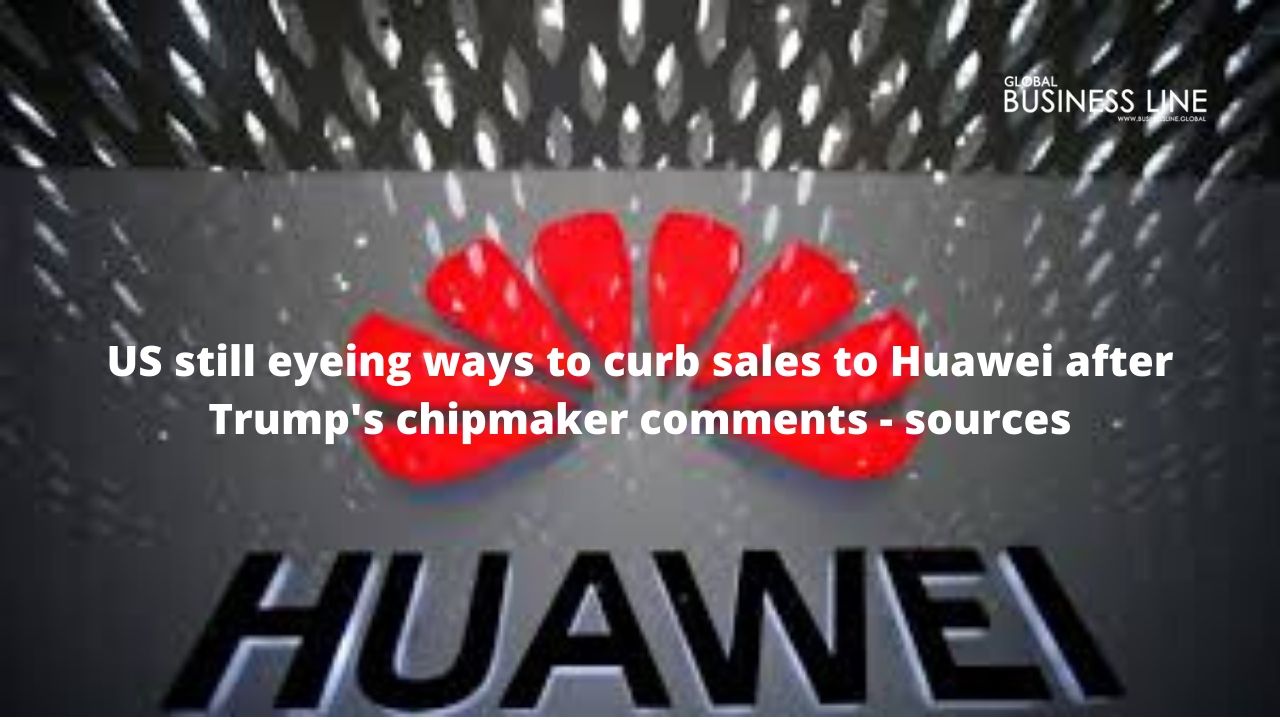U.S. government authorities are as yet considering approaches to additionally control deals to China’s Huawei Technologies , in spite of President Donald Trump’s tweets and remarks a week ago on the side of deals to China, as per individuals acquainted with the issue.
U.S. government authorities are as yet considering approaches to additionally control deals to China’s Huawei Technologies , regardless of President Donald Trump’s tweets and remarks a week ago on the side of deals to China, as indicated by individuals acquainted with the issue.
An interagency meeting was hung on Thursday to examine national security and China send out issues, including recommendations to limit deals of chips to Huawei, the world’s second-biggest cell phone creator, and an arrangement to hinder the offer of fly motors for China’s new traveler plane.
Notice
Trump told columnists a week ago he needed U.S. organizations “to be permitted to work together.”
“That is to say, things are put around my work area that have nothing to do with national security, incorporating with chipmakers and different others,” he said.
He said he had been “extremely intense” on Huawei, yet didn’t give further subtleties, and included that national security concerns ought not be blamed so as to make it hard for remote nations to purchase U.S. items.
His remarks appeared differently in relation to the sharp limitations his organization has set on U.S. organizations exchanging with Huawei over national security concerns and international strategy interests.
The United States affirms the Chinese government could utilize Huawei hardware to see, an allegation Huawei has dismissed.
DIVISIONS
Policymakers have been pointedly partitioned over Huawei and China in front of a potential bureau level gathering, which had been booked for Feb. 28 however has now been pushed to a later date. A few authorities have supported a harder line while others are increasingly centered around exchanging with the world’s second biggest economy.
Authorities from different government offices are attempting to go to an accord in front of the bureau meeting, one individual acquainted with the issue said.
In their gathering on Thursday, authorities talked about potential changes to what is known as the de minimis rule, which directs the amount U.S. substance can be in a remote made item before the United States has position to direct its deal, the sources said.
Under current guidelines, the United States can require a permit or square the fare of some cutting edge items delivered to China from different nations if U.S.- made segments make up more than 25per penny of the worth.
Yet, the U.S. Division of Commerce drafted a standard that would bring down the edge just on fares to Huawei to 10per penny and extend the domain to incorporate non-specialized merchandise like purchaser hardware including non-delicate chips.
Authorities examined bringing down that limit at Thursday’s gathering, a subsequent source said.
The administration organizations additionally have been thinking about changing the Foreign Direct Product Rule, which subjects outside made merchandise dependent on U.S. innovation or programming to U.S. oversight.
One proposed change would compel outside organizations that utilization U.S. chipmaking gear to look for licenses before providing Huawei.
Huawei was set on a U.S. exchange boycott last May that permits the United States to limit the fare of American-made merchandise to organizations accepted to be associated with exercises in opposition to the U.S. national security or international strategy interests.
In any case, numerous remote inventory chains stayed past the range of U.S. specialists, baffling China birds of prey and prodding the proposition to extend controls.

Shruthi M is a dedicated Business News Reporter at Global Business Line, specializing in breaking stories, insightful analyses, and comprehensive coverage of the global business landscape. With a keen eye for detail and a passion for delivering accurate and timely news, Shruthi keeps readers informed on the latest market trends, corporate strategies, and economic developments shaping industries worldwide.




